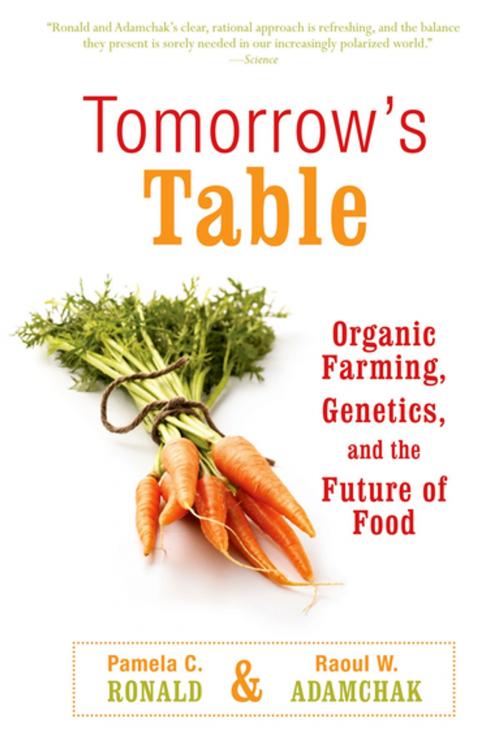Tomorrow's Table: Organic Farming, Genetics, and the Future of Food
Organic Farming, Genetics, and the Future of Food
Nonfiction, Science & Nature, Science, Biological Sciences, Botany| Author: | Pamela C. Ronald, R. W. Adamchak | ISBN: | 9780199756698 |
| Publisher: | Oxford University Press, USA | Publication: | March 19, 2008 |
| Imprint: | Oxford University Press | Language: | English |
| Author: | Pamela C. Ronald, R. W. Adamchak |
| ISBN: | 9780199756698 |
| Publisher: | Oxford University Press, USA |
| Publication: | March 19, 2008 |
| Imprint: | Oxford University Press |
| Language: | English |
By the year 2050, Earth's population will double. If we continue with current farming practices, vast amounts of wilderness will be lost, millions of birds and billions of insects will die, and the public will lose billions of dollars as a consequence of environmental degradation. Clearly, there must be a better way to meet the need for increased food production. Written as part memoir, part instruction, and part contemplation, Tomorrow's Table argues that a judicious blend of two important strands of agriculture--genetic engineering and organic farming--is key to helping feed the world's growing population in an ecologically balanced manner. Pamela Ronald, a geneticist, and her husband, Raoul Adamchak, an organic farmer, take the reader inside their lives for roughly a year, allowing us to look over their shoulders so that we can see what geneticists and organic farmers actually do. The reader sees the problems that farmers face, trying to provide larger yields without resorting to expensive or environmentally hazardous chemicals, a problem that will loom larger and larger as the century progresses. They learn how organic farmers and geneticists address these problems. This book is for consumers, farmers, and policy decision makers who want to make food choices and policy that will support ecologically responsible farming practices. It is also for anyone who wants accurate information about organic farming, genetic engineering, and their potential impacts on human health and the environment.
By the year 2050, Earth's population will double. If we continue with current farming practices, vast amounts of wilderness will be lost, millions of birds and billions of insects will die, and the public will lose billions of dollars as a consequence of environmental degradation. Clearly, there must be a better way to meet the need for increased food production. Written as part memoir, part instruction, and part contemplation, Tomorrow's Table argues that a judicious blend of two important strands of agriculture--genetic engineering and organic farming--is key to helping feed the world's growing population in an ecologically balanced manner. Pamela Ronald, a geneticist, and her husband, Raoul Adamchak, an organic farmer, take the reader inside their lives for roughly a year, allowing us to look over their shoulders so that we can see what geneticists and organic farmers actually do. The reader sees the problems that farmers face, trying to provide larger yields without resorting to expensive or environmentally hazardous chemicals, a problem that will loom larger and larger as the century progresses. They learn how organic farmers and geneticists address these problems. This book is for consumers, farmers, and policy decision makers who want to make food choices and policy that will support ecologically responsible farming practices. It is also for anyone who wants accurate information about organic farming, genetic engineering, and their potential impacts on human health and the environment.















